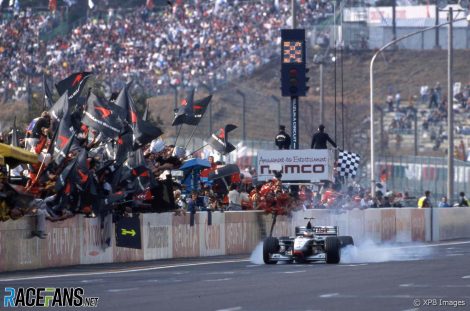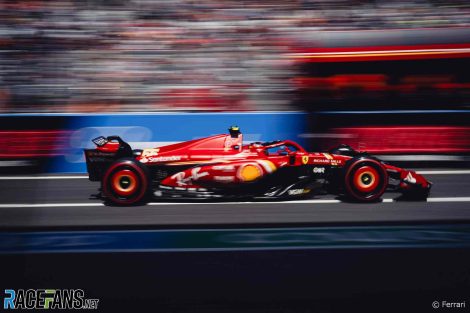The Japanese Grand Prix wasn’t just another routine win for Red Bull. Ominously for the team’s rivals, it was the first time this year Red Bull’s winning margin over their closest competitor was bigger than the year before.
In Bahrain Max Verstappen‘s 25.1-second margin over third-placed Carlos Sainz Jnr was 13 seconds less than his advantage over the next non-Red Bull the year before. In Saudi Arabia, where Sergio Perez won in 2023, Red Bull’s winning margin was only slightly less – 18.6s compared to 20.7s.
But in Japan, after the winning RB20 took the chequered flag, the next rival machine arrived 20.8 seconds later. That’s one-and-a-half seconds longer than at the same race last year.
In a repeat of last year, Verstappen won at Suzuka having seen his winning streak end at the previous round, which Sainz won.
Verstappen maintained his monopoly on success at Suzuka, which he has held since F1 returned to the venue after the pandemic. This was his third consecutive Japanese Grand Prix victory, matched only by Michael Schumacher from 2000 to 2002.
It was Verstappen’s 57th win and therefore, as he is the Netherlands’ only F1 race-winner, the 57th for a Dutch driver. He has single-handedly equalled the total wins scored by all Finnish drivers, including world champions Kimi Raikkonen (21 wins), Mika Hakkinen (20) and Keke Rosberg (five) plus Valtteri Bottas (10) and Heikki Kovalainen (one).
Red Bull scored their seventh win in the Japanese Grand Prix. They have now won this race as many times as Ferrari, though McLaren have the record for most victories with nine.
Advert | Become a RaceFans supporter and
This was the fifth win for a Honda-designed engine in their home race (all of which have come at their own Suzuka track) though not all those motors carried a simple ‘Honda’ designation. Verstappen’s title-clinching 2022 win was powered by an engine officially designated ‘Red Bull Powertrains’, though it was designed by Honda prior to their departure from F1. Since then the engines have been known as ‘Honda RBPT’.
Verstappen’s victory came from his fifth consecutive pole position, which equals his personal best run he previously achieved between the Monaco and British grands prix last year. It was also his fourth consecutive pole position since the season started, a feat last achieved by Lewis Hamilton in 2015.
He chalked up the 99th pole…
Click Here to Read the Full Original Article at RaceFans…


